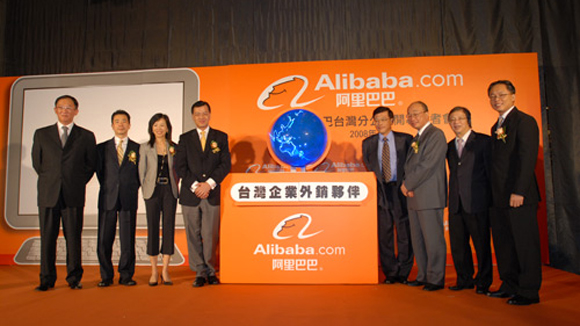Will Alibaba's IPO be the biggest in history?
Grey market expectations ahead of flotation

Alibaba, the e-commerce giant from China, may not have registered significantly on the conscience of the western public up to now, but all that's about to change.
The forecasts ahead of the firm's imminent initial public offering are eye-watering and even threaten to put the flotations of Facebook and Twitter in the shade.
To make sense of it all we spoke to IG analyst Chris Beauchamp, who gave us the inside track on the historic deal.
TechRadar Pro: So what are the initial estimates ahead of the Alibaba IPO?
Chris Beauchamp: Initial estimates abound for the valuation, but the current consensus is that a valuation somewhere in the region of $115 - $245 billion, which is quite the spread, all things considered.
TRP: Why is the outlook for Alibaba so positive?
CB: Alibaba not only has a track record of excellent growth in China, a country where internet penetration is much lower than in the US, providing opportunity for yet more sales growth, but it has a much wider operating margin than Facebook and Google, at 50% versus 37% and 28% for these other firms.
Sign up to the TechRadar Pro newsletter to get all the top news, opinion, features and guidance your business needs to succeed!
TRP: So just how big an IPO is this likely to be?
CB: The flotation would make it one of the biggest IPOs in history, dwarfing that of Twitter and potentially putting Facebook in the shade as well. IG's grey market has seen significant action now that the filing has been made, but in contrast to the wide range above, our clients actually expect an IPO range of $198 billion to $208 billion, far tighter than the currently suggested number.
TRP: So what exactly is a grey market and how do they work?
CB: Grey markets allow investors to trade shares in a company ahead of their official IPO opening day. Grey markets offer a good indication of what a price may be on opening day by looking at the extent to which those trading on markets are going long or short on a company ahead of their listing. Effectively they offer an average price based on the collective wisdom of a large number of people.
TRP: How does the Alibaba IPO compare to others that we have already seen?
CB: It's instructive to compare this grey market to previous ones. For Twitter, our grey market suggested that the share price would end the day at $43.60, valuing the company at $23.75 billion. The closing figure on the first day was $44.90, or a valuation of $24.46 billion, only a 3% premium to the IG grey market.
The previous hype surrounding IPOs such as King.com, Pets at Home and Poundland has dissipated, a reflection of investor dismay with the general poor performance.
TRP: Are grey markets always accurate?
CB: Grey markets we ran last year on both the Royal Mail and Twitter IPOs were more accurate in predicting prices than bankers and their advisers. The accuracy of the Twitter grey market prediction described above is even more stated when you consider that the price set by Twitter and the bankers was $26.
That said, of course, they aren't always right and it would be wrong to suggest otherwise. What grey markets do show us though, is that they can at least provide another interesting, different perspective to add to the research mix.
TRP: Why are grey markets proving so popular today ahead of major IPOs?
CB: IPOs like Alibaba create a huge amount of noise in the market and whether you are an analyst, journalist, banker or trader, everyone has an opinion.
Perhaps one of the reasons that grey markets are becoming an increasingly popular tool to help estimate pricings is that they rely upon the thoughts and opinions of those who are actually prepared to put their money where their mouth is.
It's a wisdom of the crowd type mentality, where a crowd led more by its own financial motivation than emotive opinion can help identify a more accurate price than many pundits, or advisors.
TRP: What other factors should be taken into account when investing in major IPOs like this?
CB: Grey markets are just one source of information. To really get a good feel for how or if you might want to invest in an IPO, the wider the perspective you can get the better.
This means doing your research and not relying in a single source of information. It's also important to think carefully about where the company in question is being listed.
Different exchanges can have different rules and (obviously) timings. We are in a particularly busy time for traders with the US reporting season firmly upon us, something that has highlighted the importance of extended hours trading. Whether investing in a company ahead of quarterly results or an IPO, having as much market access as possible is key.

Désiré has been musing and writing about technology during a career spanning four decades. He dabbled in website builders and web hosting when DHTML and frames were in vogue and started narrating about the impact of technology on society just before the start of the Y2K hysteria at the turn of the last millennium.